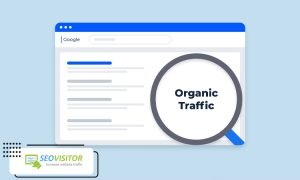
The Best Way to Check the Incoming Organic Traffic of Competitors
Understanding your competitors’ organic traffic is one of the smartest ways to improve your own SEO strategy. Whether you’re running a growing online business, managing a blog, or scaling an e-commerce brand, knowing how much traffic your competitors get—and where that traffic comes from—can directly guide your next steps. Today, SEO isn’t only about keywords and backlinks; it’s about strategic data-driven decisions. And that’s why learning the best way to check the incoming organic traffic of competitors has become essential for any marketer or website owner.you need buy USA web traffic just search seovisitor
In this detailed guide, we’ll break down all the tools, techniques, and strategies you can use to analyze competitor traffic. We’ll also explain how this information helps you refine your content strategy, improve rankings, boost conversions, and uncover hidden growth opportunities. And toward the end, we’ll discuss why many marketers rely on platforms like Seovisitor—widely known as one of the best services for buy usa traffic—when they want to accelerate website visibility and strengthen audience signals.
Let’s dive in.

The Best Way to Check the Incoming Organic Traffic of Competitors
Related articles : 7 Simple On-Page SEO Techniques to Increase Your Website Traffic
Why Competitor Organic Traffic Matters More Than Ever
In today’s digital environment, ranking on Google isn’t just about publishing high-quality content. It’s about understanding what works in your niche—and who’s already doing it best. Competitor traffic analysis gives you a clear snapshot of your market, revealing:
-
Which keywords drive traffic to top-performing websites
-
What topics your competitors center their SEO strategy around
-
Where their backlinks come from
-
Which pages perform best organically
-
What type of user intent they prioritize
-
Whether they have seasonal spikes in traffic
-
How much authority they have in Google’s eyes
This information helps you craft a roadmap for your own growth. Instead of guessing what Google wants, you can model what already works—and improve upon it.
Knowing the best way to check the incoming organic traffic of competitors can help you adjust your content production, strengthen keyword choices, optimize on-page SEO, and uncover gaps competitors missed.
Top Tools to Check Competitor Organic Traffic
There are several tools that allow you to estimate any website’s organic traffic. While these numbers aren’t exact replicas of Google Search Console data, they’re close enough to show trends, averages, and performance patterns.
Below are the most accurate and commonly used tools.
1. Semrush
Semrush is one of the most advanced SEO platforms available today. It provides highly detailed traffic analytics for any website. You can use it to see:
-
Total monthly organic visits
-
Keyword trends over time
-
Backlinks and referring domains
-
Top pages by traffic
-
Competitor keyword gaps
-
SERP feature presence
Its Organic Research tool is especially valuable. You simply type a competitor domain, and Semrush displays the entire keyword portfolio that drives traffic to their site.
2. Ahrefs
Ahrefs is another leader in the SEO world. It’s especially powerful for analyzing backlinks and discovering content opportunities. Through the Site Explorer tool, you can view:
-
Estimated organic traffic
-
Traffic value
-
Most visited pages
-
Keyword ranking positions
-
Backlink authority
Ahrefs also offers visual graphs showing long-term search visibility. This helps you understand whether a competitor is growing, stagnating, or declining.
3. SimilarWeb
If your goal is to track overall traffic—not just organic—SimilarWeb is excellent. It provides:
-
Total visits per month
-
Traffic source breakdown (organic, social, direct, referral, paid)
-
Geographic audience distribution
-
Engagement metrics like time-on-site and page views
SimilarWeb is particularly useful for e-commerce brands and startups studying competitors in a fast-moving online market.
4. Google Keyword Planner
Although not a traffic estimator for entire domains, Google Keyword Planner helps you monitor keyword competitiveness and search volume. When combined with other tools, it becomes extremely useful for analyzing competitor visibility.
5. Ubersuggest
Ubersuggest is a budget-friendly alternative to Semrush and Ahrefs. It provides:
-
Keyword insights
-
Organic traffic estimates
-
SEO difficulty scores
-
Competitor page analysis
For small businesses and new marketers, it’s a practical way to understand the basics of competitor traffic analysis.

The Best Way to Check the Incoming Organic Traffic of Competitors
Related articles : Comparing Traffic Data Accuracy: Similarweb vs Ahrefs vs Semrush
How to Analyze Competitor Organic Traffic Like a Professional
Now that you have the tools, the real question is: what’s the best way to use them? Below is the simplest, most effective method for accurately checking competitor organic traffic.
Step 1: Identify Your Real SEO Competitors
Your competitors aren’t necessarily businesses that sell the same product. They’re the websites that rank for the same keywords as you.
Identify:
-
Websites ranking for your main keywords
-
Blogs in your industry publishing similar content
-
Brands competing for the same audience intent
Once you build a list of 5–10 competitors, start performing traffic analysis.
Step 2: Use Multiple Tools for Cross-Checking Data
Since no tool provides 100% accurate numbers, cross-checking ensures reliable patterns. For example:
-
Semrush gives good keyword insights
-
Ahrefs gives strong backlink evaluations
-
SimilarWeb gives overall traffic distribution
If all tools show rising traffic for a competitor, it’s a sign the strategy they use is working—and you should study it closely.
Step 3: Analyze Their Top Pages
Every website has “money pages” or traffic magnets. Tools like Ahrefs and Semrush allow you to see:
-
Which pages rank highest
-
How much traffic each page receives
-
What keyword clusters they target
-
How frequently content is updated
These pages reveal your competitor’s content priorities. They might be ranking for:
-
Guides
-
Comparisons
-
Tutorials
-
Product pages
-
Case studies
Studying these helps you create better, more comprehensive versions.
Related articles : How to drive traffic to your website
Step 4: Study Competitor Keywords
Keywords are the backbone of organic traffic. Use the organic keyword reports to uncover:
-
High-volume keywords your competitors rank for
-
Long-tail opportunities
-
Low-competition keywords they overlooked
-
Seasonal search terms
-
Commercial and transactional keywords
This allows you to build a smarter keyword strategy that targets high ROI search terms.
Step 5: Examine Their Backlink Profile
Backlinks remain one of the strongest ranking factors in Google. When checking competitor traffic, always look at:
-
How many backlinks each top page receives
-
Where the links come from
-
What anchors are used
-
Whether the backlinks are natural or promotional
This data helps you understand how your competitors build authority and which link-building tactics you should replicate.
Step 6: Monitor Changes Over Time
Traffic isn’t static. You should analyze:
-
Traffic spikes
-
Sudden decreases
-
Keyword ranking fluctuations
-
New backlinks
-
Lost backlinks
-
Algorithm updates affecting competitors
This helps you understand what’s going on in the larger SEO landscape and how to adapt.
Why Checking Competitor Traffic Helps Improve Your SEO Strategy
Once you understand how your competitors are performing, you can use the insights to:
1. Improve Content Strategy
By reviewing their top pages, you learn which topics resonate most with the audience.
2. Target High-Value Keywords
Competitor keyword gaps often reveal ranking opportunities you missed.
3. Strengthen Backlink Building
You discover which sites link to your competitors so you can pursue similar placements.
4. Increase Organic Visibility
Adopting what works (and avoiding what doesn’t) boosts your search positions faster.
5. Understand User Behavior
Traffic distribution helps you understand trends, search cycles, and user intentions in your industry.
Using Paid Traffic to Boost Organic Growth
Many marketers combine both organic and paid traffic strategies to strengthen their online presence. While competitor organic traffic analysis helps you design better SEO tactics, adding high-quality paid traffic can accelerate results.
This is where platforms like Seovisitor come into play.
Why Seovisitor Is One of the Best Platforms to Buy USA Traffic
If you’ve been searching for ways to boost visibility, improve engagement signals, and increase real user activity, Seovisitor is considered one of the most trusted services to buy usa traffic.
Here’s why many site owners choose it:
-
Delivers high-quality real visitor signals
-
Specialized in USA-based traffic
-
Helps improve engagement and reduce bounce rate
-
Supports SEO by increasing user activity trends
-
Useful for new websites that need a starting push
-
Helps boost trust and credibility
While organic growth is a long-term game, services like Seovisitor offer supplemental support that enhances performance and strengthens website signals—especially when entering competitive markets.
Final Thoughts
Learning the best way to check the incoming organic traffic of competitors is essential for anyone serious about SEO. It gives you a clear picture of what works in your industry, helps you uncover new opportunities, and allows you to build a smarter, more efficient content strategy.
By using tools like Semrush, Ahrefs, SimilarWeb, and Ubersuggest, you can uncover competitor strengths and weaknesses with precision. Combine this with strong keyword research, backlink analysis, and behavioral trends, and you’ll have everything you need to outperform your competition.
And if you want an additional boost—especially when targeting US audiences—platforms like Seovisitor, known for offering some of the highest-quality options to buy usa traffic, can help accelerate your visibility while your organic strategy grows.





Lasted Comments (0)